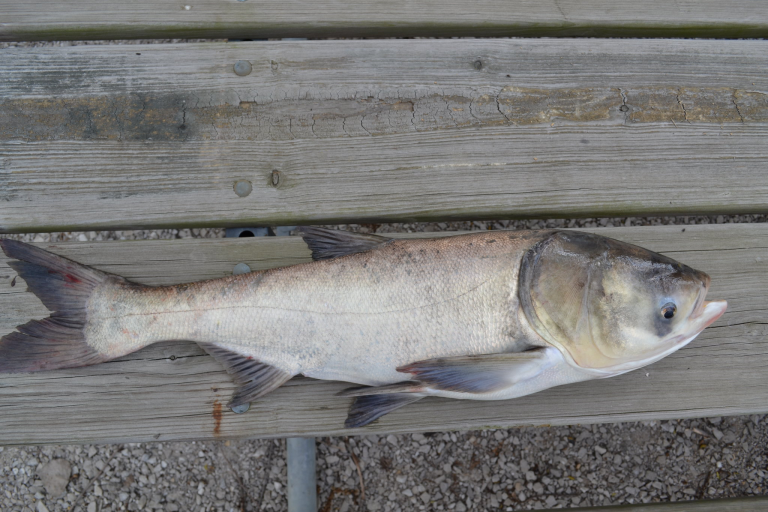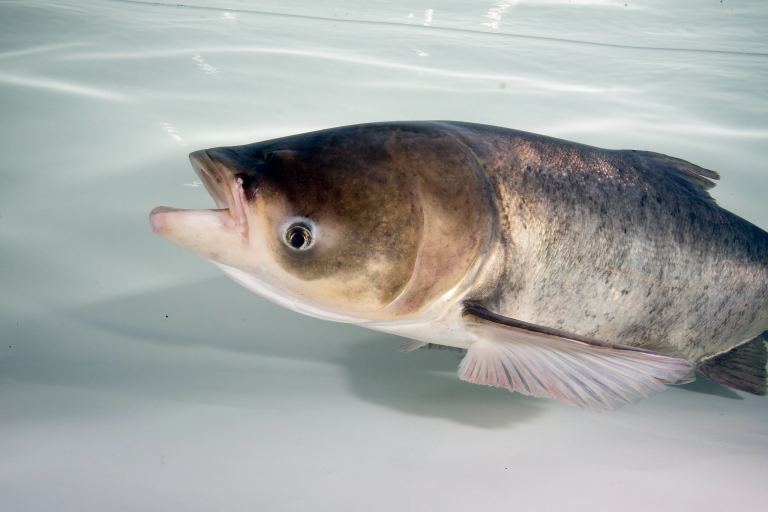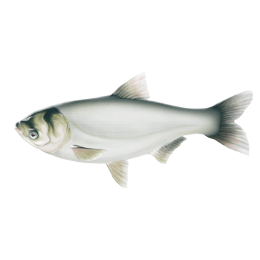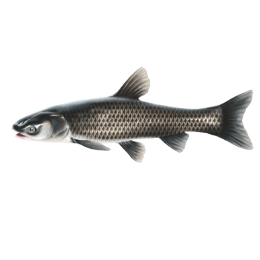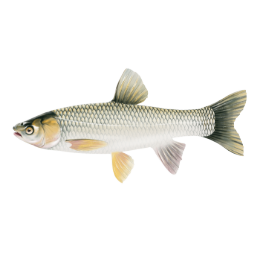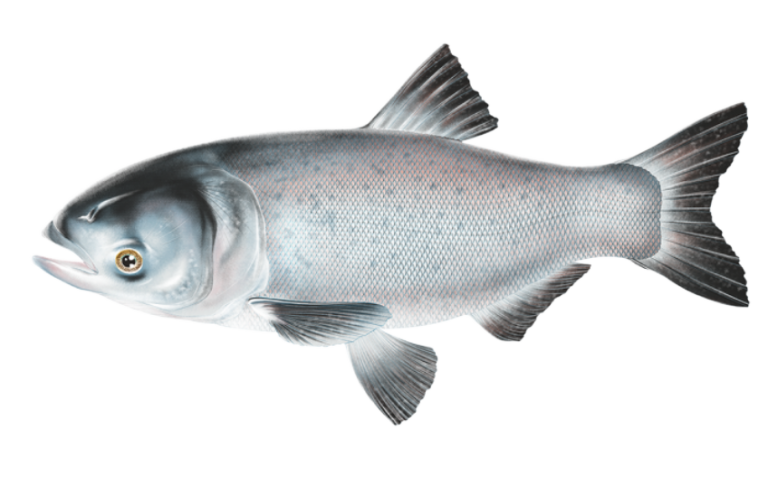
Physical Description
Bighead Carp is a deep-bodied, or wide, fish with a large toothless mouth and very large head. Their eyes are located forward and low on the head, well below the axis of the body. Coloration is dark gray above and cream-colored below with dark gray to black irregular blotches on the back and sides. Gill rakers are long, comb-like and close-set allowing the carp to strain planktonic organisms from the water for food. They have also been known to hybridize (cross-breed) with silver carp and produce viable, reproductive offspring.
Preferred Habitat
Spawning can occur in many water bodies including moderate to large rivers and lakes with areas of slow current and depths of more than 6 feet. They are active in cold water and begin to feed at water temperatures above 35° Fahrenheit, preferring temperatures of 39 to 78° Fahrenheit. Bighead carp are extremely hardy and can adapt to many temperate freshwater environments.
Diet
Bighead Carp are voracious eaters and consume a wide range of zooplankton, detritus and small invertebrates, outcompeting native species for food. They lack a true stomach which requires it to feed almost continuously.
Size
Bighead Carp mature in 2 to 3 years, commonly weighing up to 40 pounds, but under the right conditions they can grow to more than 80 pounds (rare).
Quick Facts:
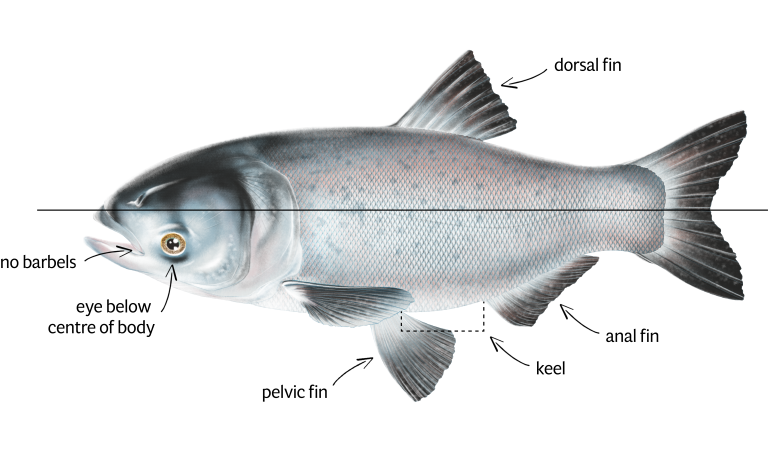
Origin: Large rivers and lakes in eastern China and far eastern Russia.
Diet: Zooplankton, detritus and small invertebrates.
Behaviour: exhibit schooling behaviour
Life span: 16+ years
Size: Maximum of more than 80 pounds and nearly 5 feet in length.
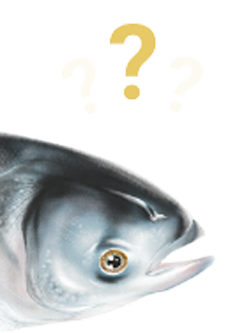
Did you know?
The Bighead Carp is a very robust fish that can adapt to many temperate freshwater environments.
Since they have no real stomach, they have to eat almost constantly
